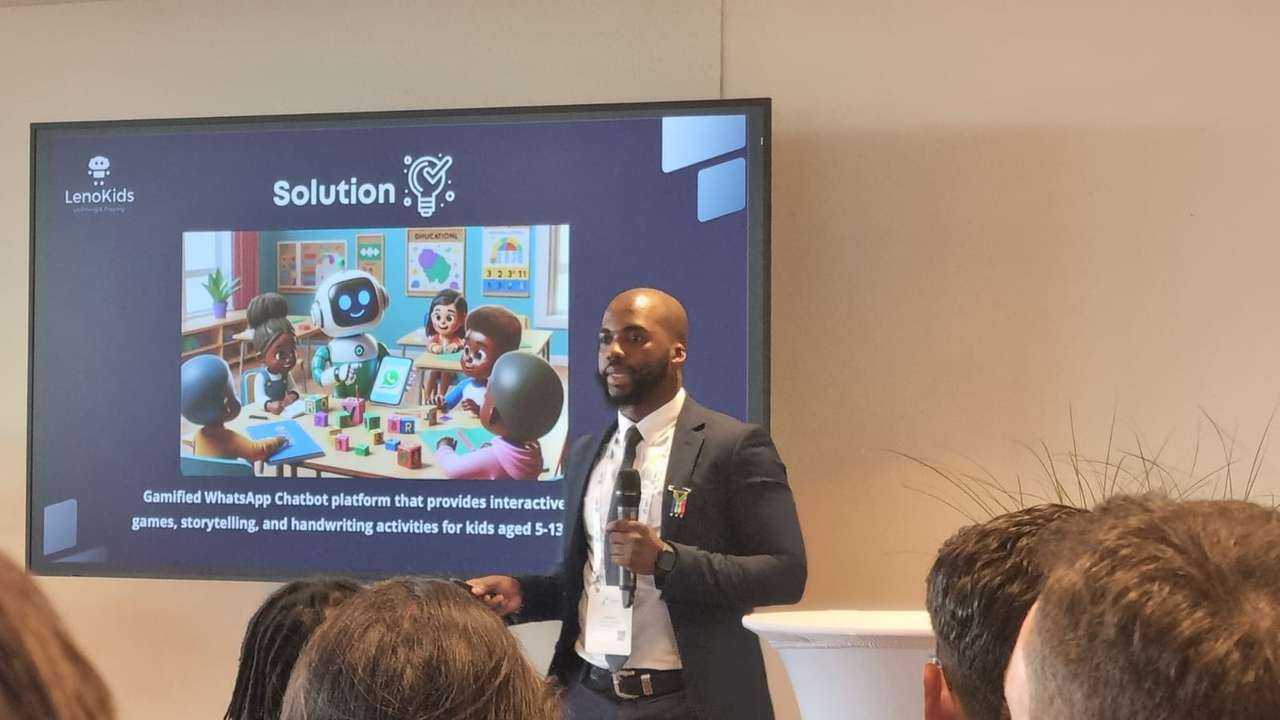Why this EdTech startup chose WhatsApp to address South Africa’s literacy crisis

The digital age has made it almost impossible to learn or perfect any skill without the help of technology. Fortunately, the new breed of kids are tech-savvy and do everything using their gamepads, tablets or computers.
It therefore comes as no surprise when young African innovators find creative ways to engage young learners through technology to transform the way children learn and interact in the English language with fun and interesting educational content.
LenoKids, a WhatsApp Chatbot learning platform is an early childhood education start-up powered by South African students in partnership with the Centre for Entrepreneurship and Innovation (CEI) at the University of the Western Cape (UWC) in South Africa.
Sange Mafinyongwana, the platform's Chief Executive Officer in an interview with Global South World's Edward Sakyi, shared that the project was born out of the 2022 MTN Digital Innovation Programme which looked to provide solutions to some of the social problems in health, education and agriculture.
"We were part of the 2022 MTN Digital Innovation Programme... Looking to address social issues within our communities... Those three sectors were mainly education, health and agriculture. Due to the passion that I have and with my team within the education space, we then looked at finding or addressing a problem within the education sector," Sange said.
It was on their journey to solve some educational sector problems they discovered an alarming statistic that "81% of fourth graders in South Africa could not read for meaning."
"If learners cannot read for meaning at the foundation phase, can you now just imagine in terms of how that will affect their future careers as they grow up?" he added. The group, according to Sange, while trying to find why this problem existed came up with LenoKids.
"We wanted parents to be involved in their child's learning journey by more or less creating a WhatsApp innovative platform that is driven by an AI that is educationally based and trained to more or less make learning and reading fun and engaging for learners by creating content that will be gamified and that will be aligned with the school curriculum," Sange explained.
Commenting on why the team opted for WhatsApp, Sange emphasised: "In South Africa, over 80% of cell phone users have WhatsApp. It's one of the communication channels that's being used mostly in South Africa. We saw a niche unique value proposition of us developing the platform on WhatsApp because it's already an on-use platform. And with terms of data, it won't be more or less a challenge for parents to use or give their children access to data."
"Utilising WhatsApp was more or less a good strategy for us by saying, we don't need to worry about accessibility. They are already using WhatsApp. We don't need to worry about data. Parents already use WhatsApp with their data. And then we don't need to compete with other apps," he added.
In a 2021 report on Progress in International Reading Literacy Study (PIRLS), South Africa ranked last with 288 points against 500 points in a global assessment to monitor the progress of literacy and reading comprehension of 9 and 10-year-olds.
BBC reports that the country's minister at the time, Angie Motshekga, blamed the low score on the closure of schools during the pandemic.
She also added "Reading instruction often focuses solely on oral performance, neglecting reading comprehension and making sense of written words" as a contributing factor.
Watch the full interview below: